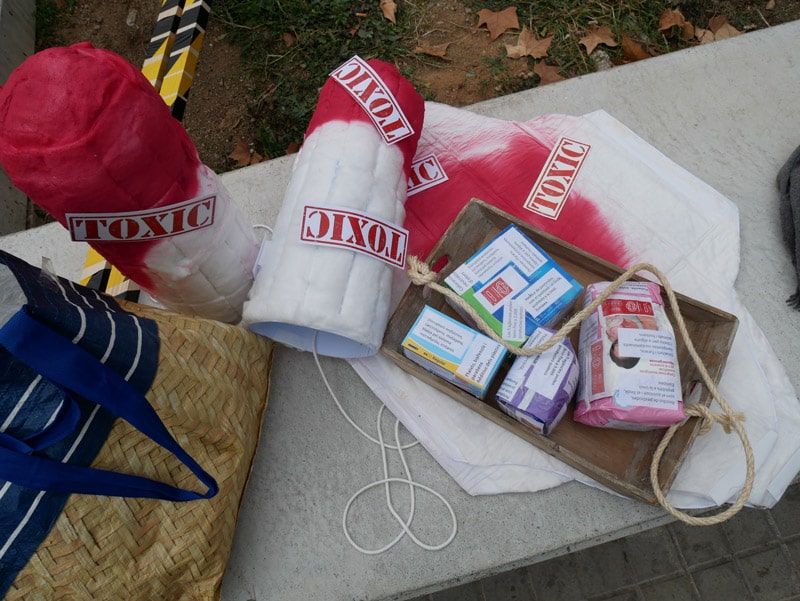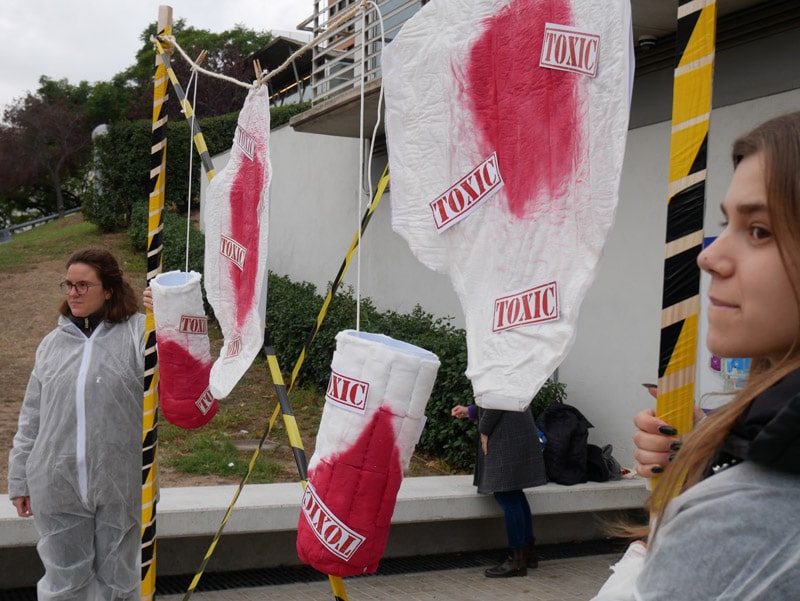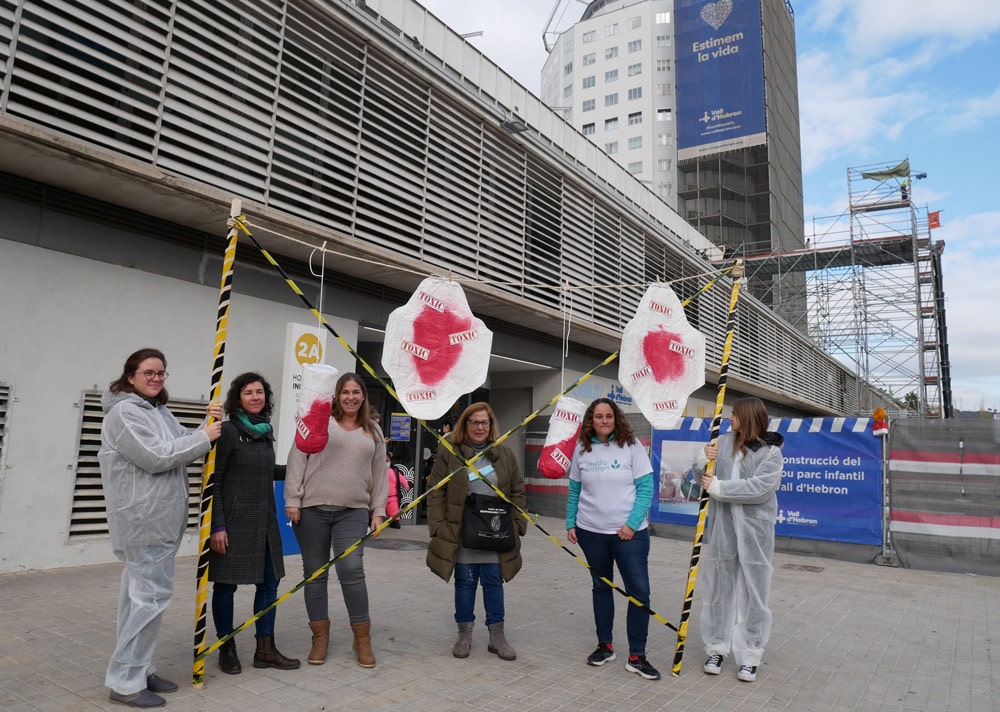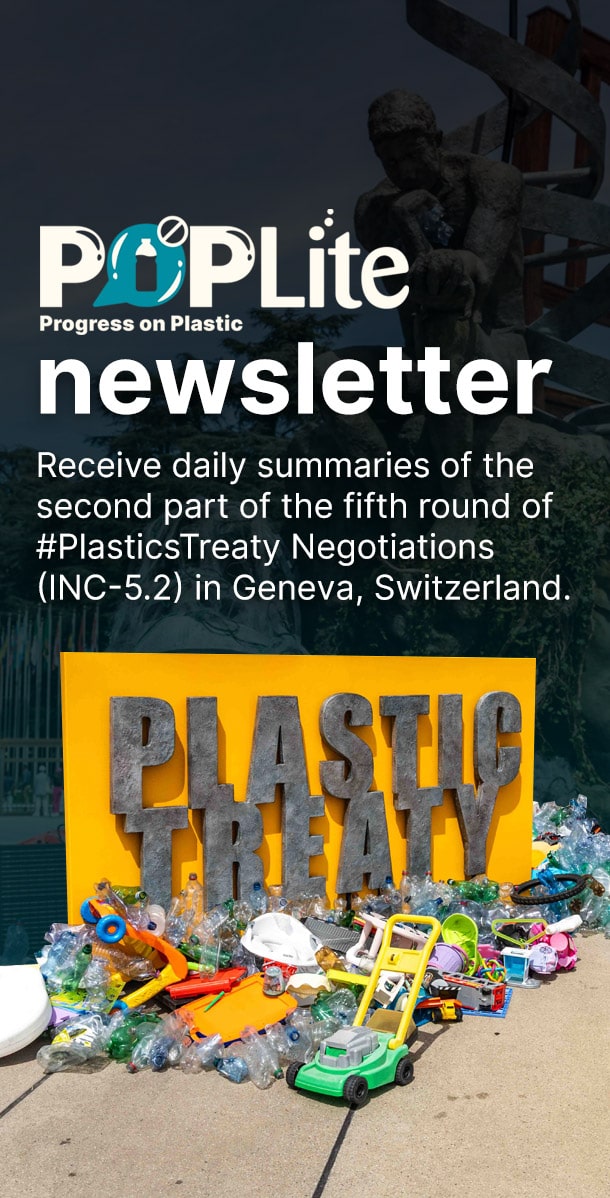Rezero is a member of Break Free From Plastic, based in Barcelona. With 17 years of experience in the field of waste prevention and responsible consumption, we search for solutions to the generation of domestic waste with a focus on promoting reusability of products to government, businesses and the general public.
We believe that all women and menstruators should have access to safe menstrual products that do no harm to users or the environment and we are fighting to make the Spanish government aware of just how much harm single-use menstrual products are causing. Our latest street action brought this message to the public and government: toxic substances in menstrual products must be prohibited and producers of menstrual products must transparently disclose the composition of their products through mandatory labeling.
Menstrual products are in contact with the vulva and vaginal mucosa, a highly sensitive and absorbent area of the body. Menstrual pads are made of 90% plastics (mainly polyethylene, polypropylene and polyester). They can contain cellulose fibers and absorbent polymers, be packaged with stickers on the bottom and have additional fragrances, coloring pigments, emulsifiers or moisturizing substances added to them.

Tampons aren’t much different: they are made of rayon or cotton core but this material is covered by plastic (polyethylene and polypropylene) and secured by a plastic thread. That’s a lot of plastic that women and other menstruators are having to put on or inside their body!
Plastic and the toxic substances used to create the material are increasingly being recognised as detrimental to human health. Plastic takes up most of the material composition of these menstrual products, and laboratory research and analysis has detected the presence of substances recognized as toxic to human health, for example, endocrine disruptors.
Among these substances there are carcinogenic compounds that are toxic to reproduction and skin-irritation substances that can be knowingly or unknowingly added to these products. Although many of these substances have been detected at residual levels, there is not enough information about the health risks that can be caused by direct and prolonged exposure of these substances to the genital mucosa. To top it off, existing research does not tell us the totality of substances found in single-use menstrual products. We are lacking a specific regulation that targets producers and distributors of menstrual products to make clear the full breakdown of what their products contain.
With our slogan ‘for a menstruation free of toxics’, we, alongside Association of Affected People by Endometriosis, Center of Analysis and Sanitary Programs (CAPS), Polytechnic University of Catalonia, University of Pompeu Fabra, University of Catalonia, Association of People Affected by Chemical Products and Environmental Radiations (Apquira), Ecologists in Action highlighted the issue to the public and government by staging a representation of toxics in menstrual products and taking the issue to the streets of Barcelona!

We demanded the government to recognise that there is a great issue of lack of transparency: for one, there is not enough information about the health risks that can cause the direct and prolonged exposure of menstrual product substances to the genital mucosa. It will take robust legislation that forces manufacturers to make clear exactly what is contained in their menstrual products on the product labels and grant the rights to consumers to have access to this information.
We have seen support from hundreds of people, public administrations and civil society organizations who joined us in our Bloody Manifesto demand. And supporters can still join us in our call by signing the manifesto.




